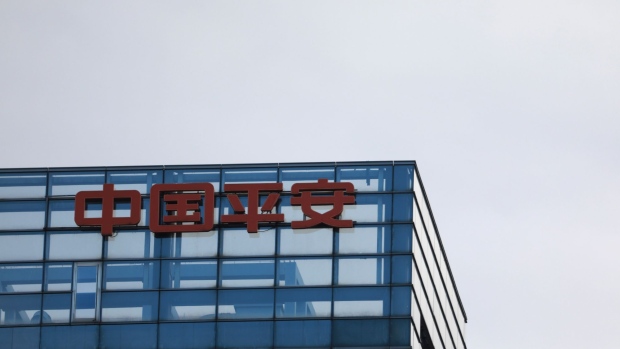Sep 26, 2020
HSBC posts biggest jump since 2009 as China's Ping An buys
Bloomberg News

HSBC Holdings Plc rose the most since 2009, recovering from a 25-year low, as its biggest shareholder raised its stake in a bet the embattled lender will return to paying dividends.
China’s Ping An Insurance Group Co., which last week bought 10.8 million shares to boost its stake to eight per cent, remains confident in HSBC’s long-term prospects, a spokesperson said. The recent slump in the share and the valuation only increases HSBC’s appeal, the spokesperson said.
“Ping An believes HSBC’s suspension of dividend payments is a short-term issue and has been actively communicating with the lender about the possibility of restoring dividends in the future,” the spokesperson said.
HSBC shares in Hong Kong on Monday rose 9.2 per cent, the biggest gain since April 2009, clawing back most of last week’s tumble and adding $6.8 billion to its market capitalization. In London, HSBC rose as much as 11.5 per cent -- also the most since April 2009. They were up nine per cent as of 10:55 a.m. local time, although they’re still down by almost half this year.
The bank last week plunged to a 25-year low in part on speculation its massive push into China could be thwarted. The ruling Communist Party’s Global Times newspaper reported that the bank could be put on an “unreliable entity” list that aims to punish firms or individuals that damage national security. HSBC has rankled China over its participation in the U.S. investigation of Huawei Technologies Co.
At the behest of U.K. regulators, the bank suspended its dividend payments earlier this year, alienating its Hong Kong retail investor base. The lender’s shares have trailed the Hang Seng Index in five out of the past six years once dividends are excluded. HSBC has pledged to review the payout once the impact of the pandemic becomes clearer.
Ivan Li, director of investment research at Convoy Global Holdings Ltd., said the surge is an indication that “that investors are less worried about its inclusion on China’s unreliable entity list as they believe China wouldn’t risk doing so before the U.S. elections.”
Shenzhen-based Ping An, which has owned a major stake in HSBC since late 2017, on Monday saw a gain of about HK$27 million on its latest purchase. Still, overall it has taken a loss of more than $8 billion over the past three years, according to data compiled by Bloomberg. It last increased its holdings in late 2018, when it bought more than 5 million shares at an average price of HK$65.12, according to filings to the Hong Kong exchange.
“Ping An boosting its stake is also a vote of confidence in HSBC’s long-term fundamentals,” Li said. “However, it’s hard to say whether HSBC’s share price has bottomed out since banks globally are still hurt by low interest rates and narrowing margins.”
HSBC was among global banks named in a report by the International Consortium of Investigative Journalists on lenders that “kept profiting from powerful and dangerous players” in the past two decades even after the U.S. imposed penalties on the institutions.
Facing difficulties in navigating low interest rates and surging loan losses sparked by the global pandemic, the bank’s profit halved in the first half. HSBC Chief Executive Officer Noel Quinn last month warned bad loans could swell to $13 billion this year. Quinn said the bank would attempt to hasten a shakeup of its global operations, accelerating a further pivot into Asia as its European operations lose money.
In response to the ICIJ report last week, the bank said that “starting in 2012, HSBC embarked on a multi-year journey to overhaul its ability to combat financial crime across more than 60 jurisdictions. HSBC is a much safer institution than it was in 2012.”
--With assistance from Winnie Zhu, Amanda Wang and John Cheng.